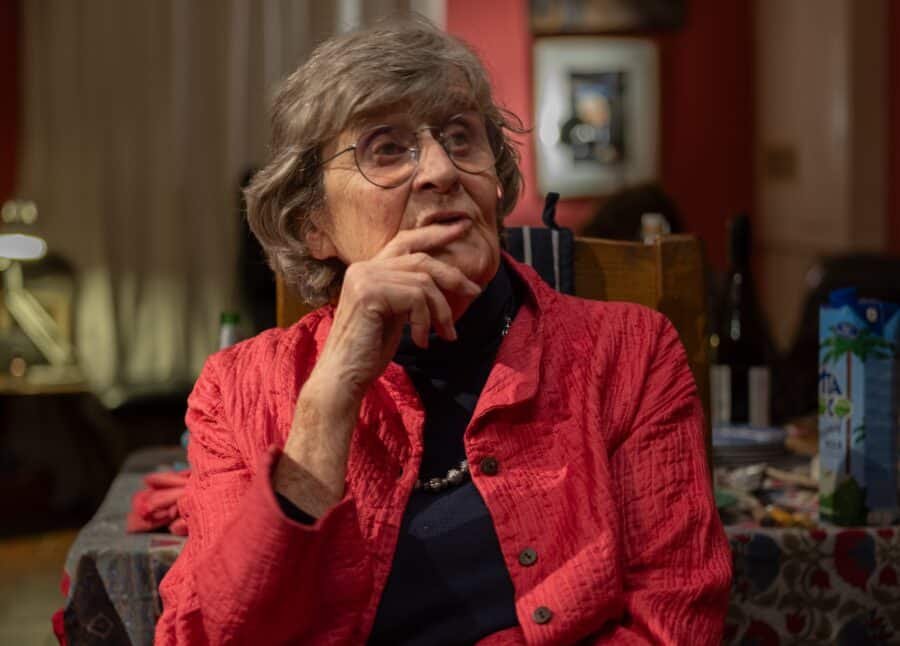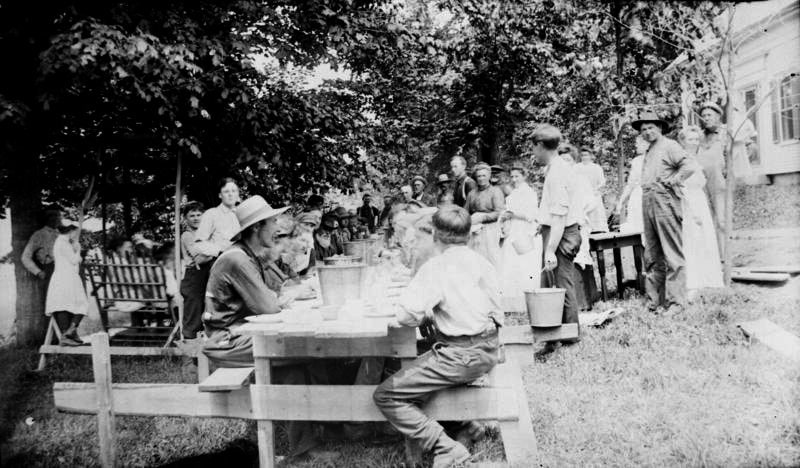Brown, a senior member of the Senate Agriculture Committee, who once chaired its Subcommittee on Rural Development, spent so much time out of state raising the $95 million to defend his seat that he never had time to visit places like Harrison and Bidwell to showcase these wins. Brown’s consultants also never thought to spend some of the campaign’s massive war chest on any paid media to tout the program’s benefits to the Buckeye State’s remaining independent livestock producers, who have been decimated by the growing monopoly power of the giant meat and poultry processors. Brown would go on to lose every rural county, except Athens County, home to Ohio University.
While MPPEP won’t cause Cargill, Smithfield and Tyson to lose much sleep, it is still a significant step to help farmers and ranchers achieve more control over their supply chains with value-added product marketing. It is also the kind of targeted assistance that will be killed and butchered like a fat steer once Trump’s Secretary of Agriculture Brooke Rollins takes over the USDA with the aim of making his pals at the North American Meat Institute happy.
The failure of Brown to make political hay out of the MPPEP initiative is one case in point among a long line of them. In the presidential race, Vice President Harris never mentioned a litany of accomplishments, like her support for the Delivering for America Act, which would have blocked operational changes that caused widespread mail delays and stopped the shutdown of mail-sorting machines to help sustain postal service through the Covid-19 pandemic so people could get their medications, checks and packages. Or how she has pushed hard for new laws such as the Postal Service Reform Act of 2022 that requires the preservation of six-day integrated delivery, expands special rates for local newspaper distribution and mandates regular congressional reporting on Postal Service operations and financial performance. How do you win voter’s hearts and minds if they don’t know what you’ve championed and delivered on?
How to improve party messaging was a key question put to the field of candidates seeking to become the next chair of the Democratic National Committee at a January 13 forum sponsored by the DNC Rural Council and the Small Business Council. Sadly, none of the nine candidates had specific recommendations for how to fix the messaging problem other than to admit that “we have to do a better job.”
Frustration over how the DNC approaches rural Americans has been festering for more than a decade. In 2014, I wrote:
[T]he Rural Council is unstaffed and still stuck in second-class status, unable to become a full-fledged caucus. Why? Because under party rules, the group must represent at least 2 percent of the DNC membership and its members must share an ‘immutable characteristic.’ As a result, the roadblock is that being rural is not a permanent trait. I swear, you can’t make this stuff up.
Since then, the number of DNC members from a rural zip code has only shrunk.
Since the 2020 election, the DNC has hired a single person as their “rural voter outreach director” and then laid them off after the election. In 2020, the rural political director was Libby Schneider, who managed North Dakota Sen. Heidi Heitkamp’s losing re-election race in 2018. Democrats like Schneider have mastered the fine art of “failing up,” that is they get promoted to better jobs after failing in their last one. Some get picked as fellows for a semester at Ivy League spots like Harvard’s Kennedy Institute of Politics. After her short stint as rural outreach director, Schneider moved on to be the DNC’s chief of staff. Next, in the 2022 cycle, came Teresa Purcell of Washington State. Purcell was pink-slipped in late 2022. Bre Maxwell, the rural vote director in 2024 was not hired until July. Maxwell, who had worked on then-DNC Chair Jamie Harrison’s failed Senate race in 2020, had no experience with rural issues or organizing and was shown the door after November 5, 2024.
The candidates at the January 13 forum were asked how they would address the issue of empowering rural organizing year-round and the lack of retention of staff late in the cycle. Ken Martin and Ben Wikler, the two front runners in the race for chair, both agreed that this pattern of hiring and firing is not working. “We haven’t done it very well and we need some consistency here,” said Martin, who chairs the Democratic Farmer-Labor Party in Minnesota and is the president of the Association of State Democratic Committees (ASDC). “It feels like tokenization, it doesn’t feel like a real commitment,” said Wikler, the state party chair in neighboring Wisconsin. However, neither man (or any of the other candidates) pledged to fund and staff a Rural Desk. (On January 15, Faiz Shakir, Bernie Sanders’s 2020 campaign manager, announced his candidacy for chair of the DNC and thus did not participate in the forum.)
One area most of the candidates seemed to agree on was lessening the grip of a set of political consultants who have attached themselves to the party like barnacles on a rusting hull. Martin said, “We have to make sure we get rid of the D.C. consultants who don’t provide value. I’m interested in winning the U.S. House back, not building a consultant a new house.”
Unfortunately, none of these candidates is the second coming of Howard Dean. Dean, the former governor of Vermont, the nation’s most-rural state, is probably the most impactful DNC chair in the last 50 years. His 50-state strategy helped funnel money into red and purple states, which was used to aid candidates down the ballot, thus building a vital bench of office seekers in places they were most needed. Dean’s stewardship paid off in big gains in the 2006 and 2008 election cycles.
Martin has had a decent record overall, but the party has lost ground to Republicans across greater Minnesota, from the Iron Range up north and the Red River Valley in the west to the southern part of the state that once elected Democratic Gov. Tim Walz as congressman. Last year the DFL also lost their majority in the state House of Representatives.
Likewise, Wikler can boast of helping expand state legislative seats in Madison and winning a key state supreme court race in 2023, but his tenure has also seen brutal defeats for U.S. Senate in 2022 by Mandela Barnes and the failure to flip the once Democratic rural Wis.-3 seat in the last two elections. Wikler has also built a statewide rural signage distribution network to ship pallets of yard signs for various candidates to county parties who had loudly complained in the past that they were not getting access to the needed quantities of signs that are so important in small towns and rural areas.
Nancy Larson, who has known Martin for years, has confidence that he will equip himself well if chosen as the new chair. “He’s a really good fundraiser and he does organize things and get things done,” says Larson, who served two terms on the DNC representing rural Minnesota. She adds, “He pisses people off a lot but that’s okay. The only way you don’t piss people off is by doing nothing.”
Whoever becomes the next chair, the job will remain a thankless one, with the priorities of setting the sequence of the 2028 presidential primary and caucus calendar and making sure that the next nominating convention is funded and airborne, taking priority.
Cathy Albro, who chaired the Michigan Democratic Party Rural Caucus from 2019-2023 articulates the heartburn that many rural Democrats feel:
We are in a critical period where we can change how rural Democrats are treated and supported. There are reasons why most of the rural United States votes for Republicans or doesn’t vote at all. For decades now, the Democratic Party has not been present in rural communities. There are some county parties doing what they can, with no support from the state party. Even those counties have 100 percent Republicans running local government. They can’t change it alone.
At this point in the race, Martin is the favorite to win, with support from about 200 of the 448 DNC members. Carol Abney, a DNC member from rural Celina, Tennessee, the hometown of comedian Trae Crowder, noted that Martin has the backing of the entire Tennessee delegation. “Ken came to Tennessee and that matters. I trust Ken, I hope he’s dynamic enough to do what we need to do,” says Abney, a CPA who also serves as the treasurer of the Tennessee Democratic Party.
Asked if she was excited about the contest for chair, Abney says, “Excited? I’m exhausted.” She says many Democrats in blue states don’t understand the pressures that rural poverty exerts on people like some of her neighbors in Clay County. Abney said many people fear not being able to get a mortgage application approved or not winning a promotion at their place of employment if they are seen as being public about their support for or affiliation with the Democrats. “Lots of folks are in survival mode here.”
Matt L. Barron is a political consultant and rural strategist based in Chesterfield, Massachusetts where he runs MLB Research Associates.
Have thoughts or reactions to this or any other piece that you’d like to share? Send us a note with the Letter to the Editor form.
Want to republish this story? Check out our guide.









